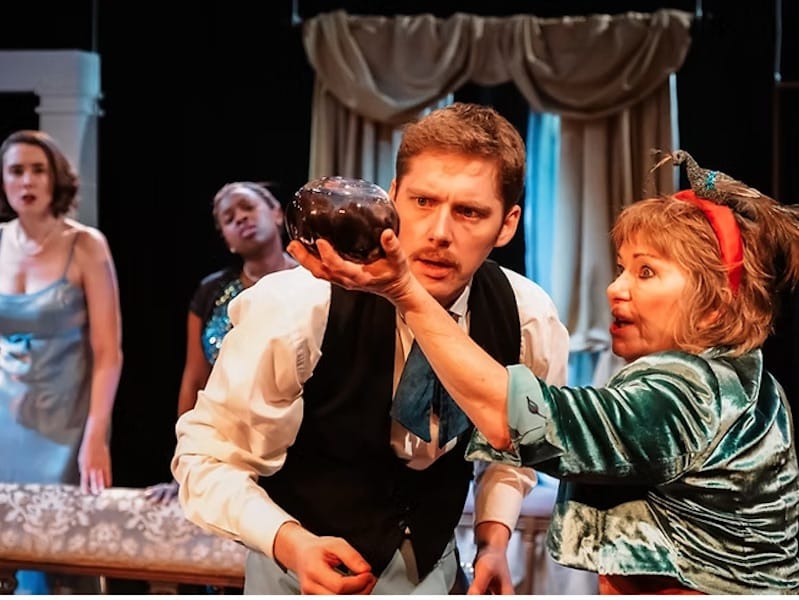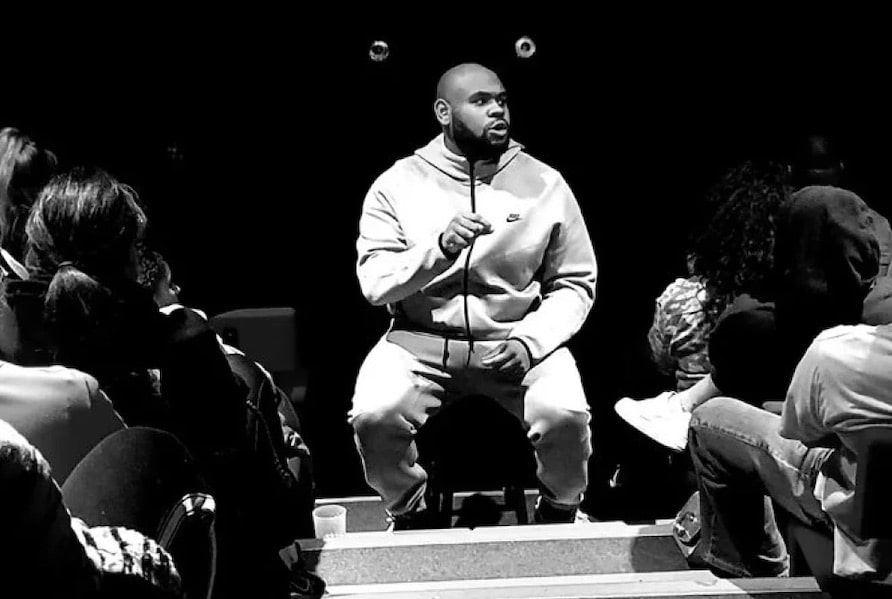Trailblazing all-female Shakespeare roadshow coming to Salford
- Written by Glenn Meads
- Last updated 6 years ago
- Cinema, City of Salford, Culture, Theatre
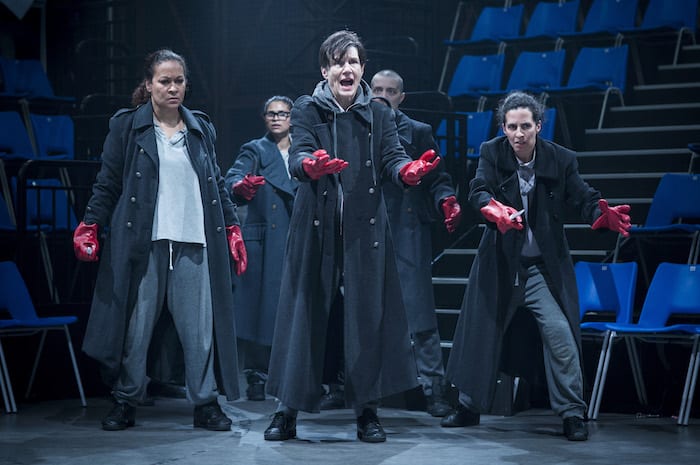
Screen versions of a trailblazing all-female Shakespeare Trilogy produced by London theatre Donmar Warehouse is now available to watch for free in all schools across the UK via the National Theatre’s on demand in schools service.
To celebrate, a roadshow is touring the country featuring a workshop, screening and Q&A event for teachers and students. It launches at The Lowry on Monday 14th January.
50 students will undertake two hour-long workshops with the Trilogy’s director Phyllida Lloyd and cast members before being joined by a further 70 students from schools across the north west for a special screening of Julius Caesar with an introduction and Q&A from Phyllida with cast members Jade Anouka and Jackie Clune.
We caught up with The Donmar’s education manager Phil McCormack to find out more.
What is the thinking behind the Shakespeare road show?
Having seen the power that these productions have had for audiences across the five years that they were developed and performed, when we had the opportunity to share them via film, we wanted to ensure that we could offer them with schools and teachers across the UK with the artists behind them joining the journey. The whole mission of the Trilogy was to make Shakespeare accessible, and we have seen that with artists working alongside teachers and young people, we have developed some great work.
Why was Salford chosen for the launch?
We chose Salford for many reasons. It was important for us to go to a venue that wished to partner with us and share the work with their schools network, and The Lowry is a brilliant anchor for so much creative activity for the north. It’s also the area in which our artistic director, Josie Rourke, grew up. And being a northerner myself, I love that I can share the work that we are making here in London to the places that inspired me to do the job that I do today.
Gender blind casting really gives a new spin on classic plays. But would you like to see more great plays written for women?
One of the reasons why Phyllida and the team behind the Trilogy made these productions was because the lack of powerful, exciting and monumental roles for women. There is a shift happening in which we are seeing more female-led narratives onstage and screen, and we know there are artists that want to present this work, and there’s certainly the audience for it. As an industry, we need to continue to push for this and celebrate these achievements so that more is done to continue making work that puts female narratives front and centre.
Shakespeare plays are very cinematic. But how does filming them enhance the meaning for the audience?
Phyllida worked really hard to think about what does the transfer of these plays, that have been presented as living, breathing things, live in front of an audience on to film mean. In order to take the intimacy of the work that we present in our theatre into cinemas, homes and classrooms, the films have been recorded with from multiple angles and there was lots of work done to design the sound experience for this different audience. What we gain from the films is close-ups and framed action that you may not always get to see on a stage. You have a different form of closeness with the work which makes the plays feel even more visceral.
Why is Shakespeare still important to a generation who watch Netflix and stream their music?
Shakespeare is so relevant to us all as the issues that he was writing about back in the 16th century still exist today. They are universal stories that cross generations. In our production of Henry IV, we see Britain being carved up with the Earls jostling over which parts of the country should be theirs. Who was to know that when this production was originally created in 2014, we would be in the situation that we are in today, with borders being drawn with Brexit and walls being built in the US?
- This article was last updated 6 years ago.
- It was first published on 9 January 2019 and is subject to be updated from time to time. Please refresh or return to see the latest version.
Did we miss something? Let us know: [email protected]
Want to be the first to receive all the latest news stories, what’s on and events from the heart of Manchester? Sign up here.
Manchester is a successful city, but many people suffer. I Love Manchester helps raise awareness and funds to help improve the lives and prospects of people across Greater Manchester – and we can’t do it without your help. So please support us with what you can so we can continue to spread the love. Thank you in advance!
An email you’ll love. Subscribe to our newsletter to get the latest news stories delivered direct to your inbox.
Got a story worth sharing?
What’s the story? We are all ears when it comes to positive news and inspiring stories. You can send story ideas to [email protected]
While we can’t guarantee to publish everything, we will always consider any enquiry or idea that promotes:
- Independent new openings
- Human interest
- Not-for-profit organisations
- Community Interest Companies (CiCs) and projects
- Charities and charitable initiatives
- Affordability and offers saving people over 20%
For anything else, don’t hesitate to get in touch with us about advertorials (from £350+VAT) and advertising opportunities: [email protected]
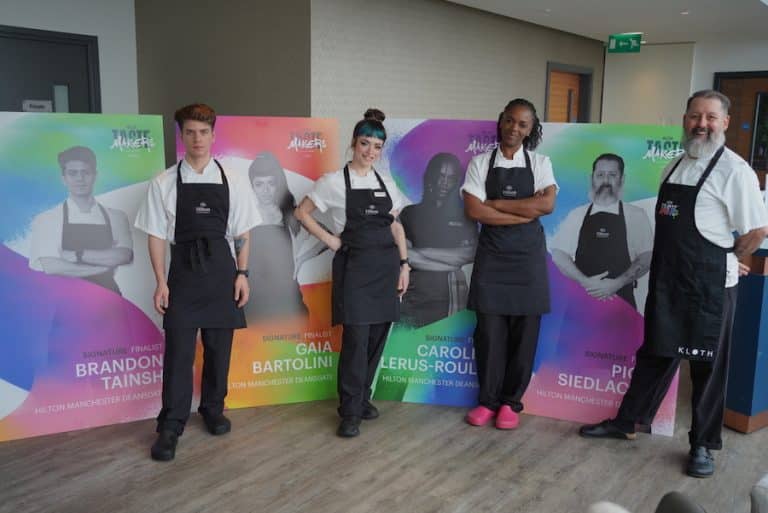
Hilton Manchester Deansgate’s superstar chefs shine on the world stage

Stalybridge to get multi-million pound makeover of public spaces
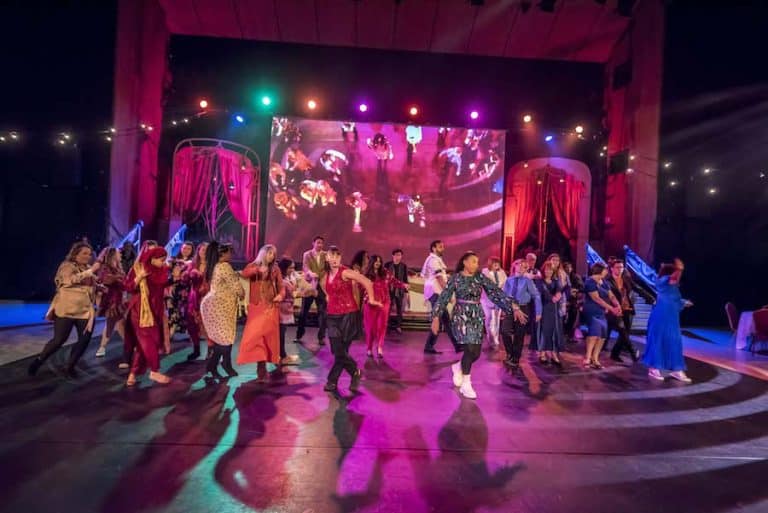
Review: The Engagement Party at Queen Elizabeth Hall ‘is full of immersive fun’

Piehard: where to get the best pies in and around Manchester








